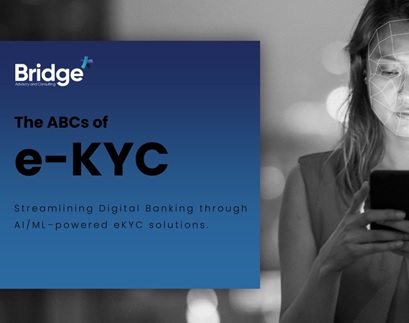As a result of COVID-19, Digital banking has become a global trend as consumers continue to move all their financial transactions to online and mobile channels. This has changed the financial industry landscape, accelerating the need for digital transformation throughout the banking and finance sectors.
All organizations and economic agents, particularly financial institutions, and banks, are going through a significant digitalization process.
One such solution being adapted by financial institutions is eKYC (electronic Know Your Customer). This involves using modern technological staples such as artificial intelligence (AI) and machine learning (ML) to transform and optimize processes. eKYC enables complete digital onboarding capabilities that enables remote identity verification and management and can be tailored for banks and telecommunications companies and their individual online client acquisition frameworks.
Here at Bridge Advisory & Consulting, we strive to fill the existing digital gaps by fast-tracking the integration of such solutions through partnerships with key global industry players with the goal of offering next generation lending management and eKYC solutions to the Sri Lankan market.

Such software solutions will help organizations overcome the challenges usually faced when manually onboarding customers, negating the occurrence of time wasting due to long, drawn-out processes, significantly reducing the occurrence of money laundering and fraud, outright preventing cyberterrorism and identity theft, all while ensuring total regulatory compliance.
